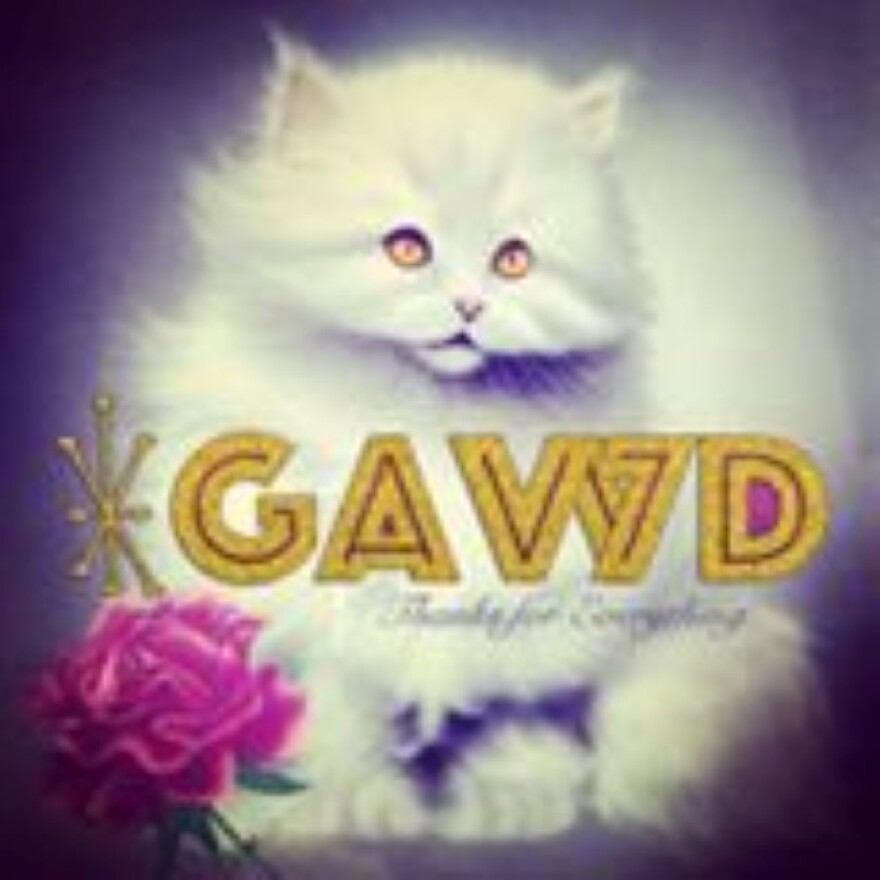GAV7D
Thanks for Everything (Johnny Hamil/GAV7D)
This extension of Kansas City's Mr. Marco’s V7 is a testament to the wide-ranging brilliance and vision of its bassist Johnny Hamil. Even though Hamil wrote virtually everything here — give or take the improvisation he encourages and the lyrical contributions noted on three cuts — and even though Hamil plays bass, keys or vibes on everything, key to that vision is humility and thankfulness.
GAV7D, after all, is a valentine to Kansas City’s music and musicians, but it is certainly nothing Hallmark would dream up — or touch with a ten-foot-pole.
Hamil is a classically trained double bass player with hard rock in his background, but he essentially defines Ralph Ellison’s concept of the jazz impulse. Ellison called it an aesthetic of constant redefinition — individually, as a member of a community and as a part of an ongoing tradition. This music is one overwhelming experiment in recombining, through Hamil’s architecture, all kinds of Kansas City DNA. It features 26 of Kansas City’s most interesting voices, all singing together on what’s called the “We Are the World” choir segment of the haunting torch duet by Anna Cole and Steve Tulipana.
The musical set pieces range wildly throughout the album, from manic KC blues to ethereal meditations to punk versions of free jazz and gothic metal.
Which is not to say this album is unfocused. If anything, it has a hard focus defined by titles like that of the opener “The Difference Between Art and Sadness” (sung by Amy Farrand and Cody Wyoming), “War of WYCO” (sung by Jason Beers and Elaine McMillan) and “Goodbye My Friend” (sung by Tony Ladesich). This is an album about grief and struggle and why art matters. The community here is key. As Stevenson sings on “Don’t Call Me (Mr. Smartiepants)”: “You elevate me, and when I need it, you deflate me.”

This is a hard-nosed perspective, and it takes on some of Kansas City music’s hardest recent losses. Greg Todt lends tender supporting vocals to Howard Iceberg on a tribute to Abigail Henderson, who led three important Kansas City bands and founded the Midwest Musical Foundation to, among other things, help musicians find healthcare before she succumbed to her own fight with cancer. Victor & Penny soon follow with a beautiful tribute to the late Anne Winter, the owner of Recycled Sounds on Main Street, a cultural center as important as any this city has seen. Hamil’s lyric repeatedly mentions Winter’s one-in-a-million smile and thanks her for affirming his eccentricity: “I only know you’re the only one that looked at me and didn’t run.”
Tender as the sentiments can sometimes be, this record luxuriates in its outrageousness. “Lick the Belly” (sung by Rex Hobart and Greg Todt) recalls the glory days of local legends the Sin City Disciples with a tribute to lead singer Ernie Locke’s often bare, abundant torso. Two songs are titled “Eastwood Stayed Skinny, Travolta Got Fat,” one deep dish hip hop madness from John Bersuch, the other a Patti Smith-like prayer by Kasey Rausch. And while Hamil’s music tends to rock hard — nowhere moreso than on Betse Ellis’s fiddle-rock, “The Last Chord of the Devil” — some of the finest surprises come in the most ethereal moments.
“Shitshow” is just such a moment, with vocals by David Regnier, Calandra Ysquierdo and Kyle Dahlquist. The vocal is close to a Buddhist chant over sustained keyboard and occasional vibes. But, falling between the tributes to Henderson and Winter, it becomes a testament to survival, with “I think I’m going to stay” being the life and death answer to the question on the table. When the song opens up for a cosmic guitar battle between, presumably, Chad Meise and Jeff Freling, the musical contrast further defines the plan: “I think I’m going to play every way and every day.”
It’s a statement of purpose, not just for Hamil but for everyone involved in this bold and brilliant tribute to one another.
Kansas City-area music journalist Danny Alexander is the associate editor of Rock & Rap Confidential and author of Real Love, No Drama: The Music of Mary J. Blige, out in 2016 from the University of Texas Press.





